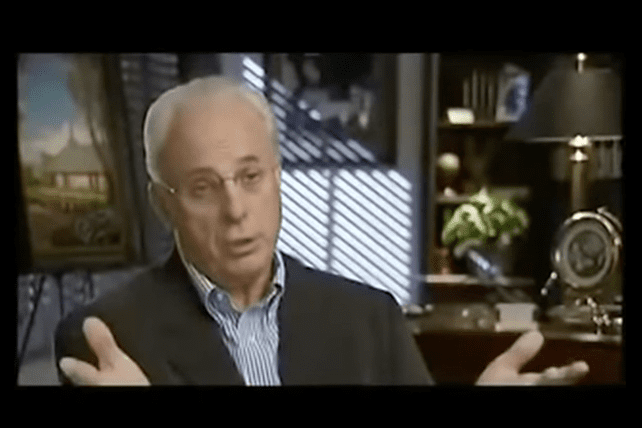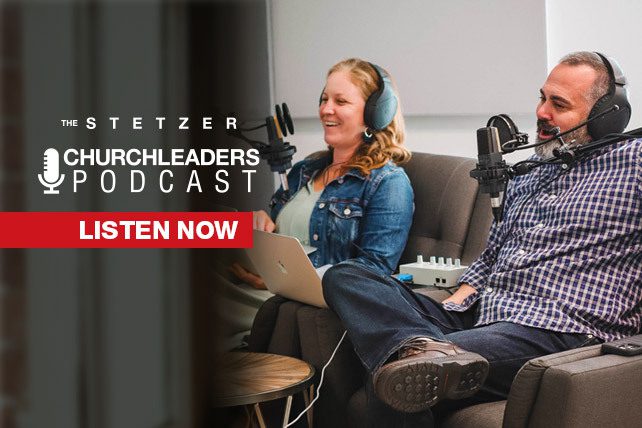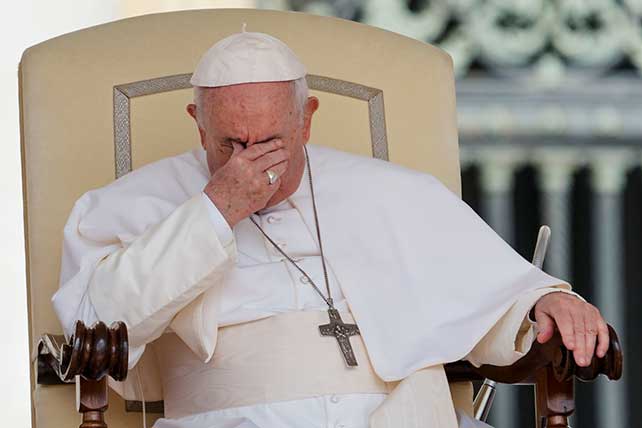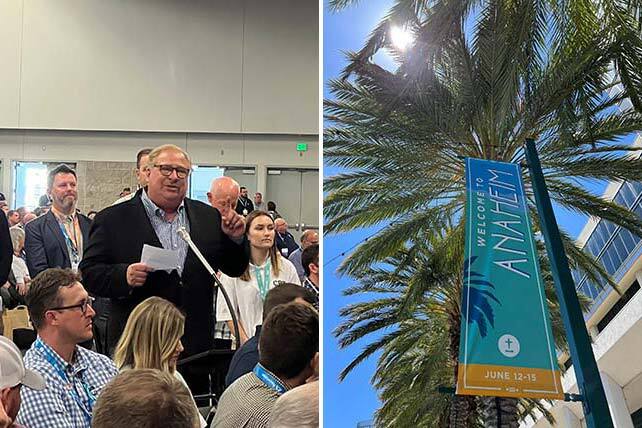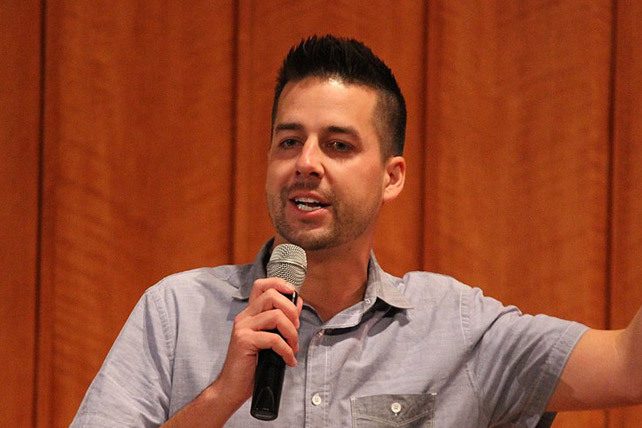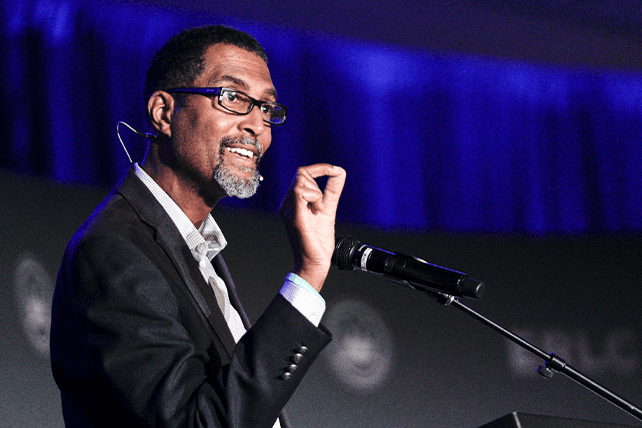If you had to choose between a chicken sandwich from Chick-fil-A or Popeyes, which one would you choose? If you’re a coffee person and you had to choose coffee from Dunkin’ Donuts or Starbucks, which would be your choice? What about Apple verses Microsoft products?
If I asked the follow up question, “Why do you prefer that product over the other one?” you would be able to give me your personal testimony, your defense, as to why you prefer one item over the other. And your reasoning, whether consciously or unconsciously, would be anchored in an objective reality with personal experiential points.
Whether we are talking about technology, coffee, or even a sports team, we all have a story that tells the reason our preferences are what they are.
Your Personal Conversion Story
What is true about menial matters like coffee is magnified when it comes to our faith. Throughout the book of Acts, the Apostle Paul’s shares his testimony on three occasions (Acts 9, Acts 22, and Acts 26). It seems like Paul never got tired of sharing his story of salvation. And it is my prayer that those of us who have a personal conversion story—those of us who have become Christians—will never get over sharing with others how we were transferred from the domain of darkness into the glorious kingdom of Jesus Christ (Colossians 1:13).
In looking at Paul’s conversion story, there’s at least three elements that I believe will help us share our own personal conversion story with great clarity.
First, Paul noted who he was and what he did in his past. For instance, in Acts 26, Paul expressed that he grew up as a faithful Jew and member of the strictest sect of Judaism. When followers of Jesus emerged, he opposed the name of Jesus and all those who claimed his name. In opposing them, he put people in prison, signed death warrants, and pursued with great rage Christians all over the region. That was Paul before Christ.
Second, Paul noted that he had an encounter with Jesus. Paul’s encounter with Jesus contained at least five components that I do believe still exists when people encounter Jesus today.
First, there’s a spiritual component. Paul had a divine encounter with Jesus. Such an encounter is difficult to put in words that make sense to human beings. Second, there’s an experiential component to Paul’s encounter. He had a physical experience. He was knocked down and blinded. Many people, reliving their personal conversion story, can typically remember their experience either at the moment of their conversion or during the season of their conversion.
Third, there is a relational component. Paul knew that Jesus was reaching out and speaking to him. Jesus was drawing Paul to himself. Every personal conversion story should include the component of being drawn personally and relationally to Jesus. Fourth, there’s an intelligible component. In other words, there’s this intelligible understanding of who one is and Jesus’ vision of who he wants them to become. This component leads to the last, which is the confrontational component. Jesus confronted Paul and issued the imperative to stop doing this and start doing this. The confrontational component involves the denial of self and taking up one’s cross and following Jesus. In other words, it involves repentance—a change of mind and direction.
Third, Paul explained how his encounter with Jesus led to his personal transformation. Paul went from sinner to saint, religious Pharisee to gospel preacher, persecutor to persecuted, foe to family, fighter of flesh to filled with the Spirit, agitator to apostle, hostile to humble, law-driven to love-driven, and from mono-ethnic to multi-ethnic. After his encounter with Jesus, Paul was a different man.
When sharing with others today our personal conversion story, we want to articulate, with clarity, who were before Christ, what our encounter with Christ looked like, and how we were and are being changed (transformed) as a result of our encounter with Christ.
Personal Conversion Story As Primary Defense in Our Current Culture
In Acts 22 and 26 where Paul shares his testimony, Luke uses the Greek word apologias to describe Paul’s “defense.” Yes, we get the term apologetics from apologias.
Apologetics has been popular in Christian circles since the early church fathers. Over the last century or so, there’s been a resurgence of Christian apologists and apologetics. A lot of Christian apologetics rose as more of a defense against modernity, which flowed from the Enlightenment. While modernity anchored itself in a facts-based, universal truth, and rational foundation, it eventually replaced God at center with man. Thus, human reason, intellect, knowledge, and ability became the center of what would bring about a meaningful life, leading to a utopia—a heaven on earth. As a result, God was pushed to the periphery. This is what Nietzsche was getting at when he uttered the phrase, “God is dead.” Man no longer needs God.
While modernity was doing its thing, along came the challenger, postmodernity. Postmodernity saw modernity as a failure. They saw the results of modernity—multiple world wars, wide-scale corruption, abuse of power from all institutions, the inability to solve some of the major problems in the world like poverty—as a failure to produce what it promised. As a result, postmodernism rooted itself in skepticism, deconstruction, subjectivity, and personalization. Postmodernism ultimately sought to deconstruct metanarratives—religious or philosophical frameworks that helped makes sense of the world. If modernity’s tagline was, “I think, therefore I am,” postmodernity’s tagline would be, “I feel, therefore I am.”
Some might say that postmodernity was rejected in the 1990s and early 2000s. And to a degree, they would be right. However, according to Helen Pluckrose and James Lindsay in their book, Cynical Theories, postmodernism resurfaced in more of an “applied postmodernism” that sought to deconstruct what was and to reconstruct a socially just society in its own ideological image around issues of race, gender, and sexuality.
I bring up modernity and postmodernity because most of our Christian apologetics over the last 50–75 years have sought to rationally and intellectually answer the questions of modernity like, “How do you know God exists? If God is good, why is there evil? How do you scientifically explain miracles?” When it comes to the new and improved postmodernity, I believe the church is still trying to understand it so that it can be able to articulate a contextual defense or apology.
Nevertheless, while I love apologetics and believe they should play a role in our Christian witness, I do find it interesting that Paul shares his personal conversion story to two very different groups when on trial—when on defense.
As we think about the most effective ways to reach the two cultural camps—modernists and postmodernists—in North America, I believe our personal conversion stories will be the most effective apologetic. It is this apologetic that is anchored in the historical Jesus—who lived, died, was buried, and rose from the dead and who promises to make all things new—and anchored to people’s personal experiences for how they encountered Jesus and came to the decision of declaring Him as their Savior, Lord, and King.
In closing, as I see it, one’s personal conversion story is the primary apologetic for reaching people far from Jesus—regardless of time and context. And the great thing about this apologetic is every believer can master it! All you need is a story like the blind man in John 9 who exclaimed in his defense of Jesus, “I was blind and [because of Jesus] now I see.”



